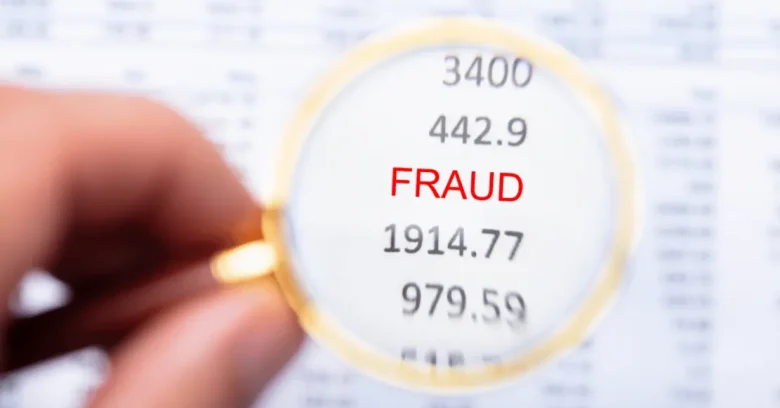Financial fraud steals billions of dollars annually and damages the creditworthiness of millions of Americans. From sophisticated phishing to identity theft, criminals are constantly innovating to take advantage of their victims. Information and precautions can prevent most financial fraud. By understanding the scammers and taking simple safety precautions, you can avoid becoming a victim. This detailed guide will help you protect your financial information, identify fraudulent activity, and respond successfully if you become a victim. By taking precautions now, you can protect your finances and gain peace of mind in the digital age.
Understanding Financial Fraud:
Financial fraud involves improper means to obtain money, assets, or sensitive information. Financial fraud requires manipulation and trust-building so the victim becomes a willing accomplice. To gain trust and personal information, fraudsters may impersonate companies, government agencies, or financial institutions. Financial fraud has increased in the digital age because criminals can easily reach victims worldwide. Modern fraud tactics include sophisticated techniques and tactics that make them harder to detect. Recognizing that fraud can happen to anyone, regardless of age, education, or income, is the first step to protecting yourself.
Common Financial Fraud:
Unauthorized use of credit or debit cards to make purchases or withdraw cash is one of the most common financial crimes. Identity theft occurs when a criminal steals personal information to open new accounts, file false tax returns, or receive medical treatment under someone else’s name. Phishing scams use fake emails, websites, and phone calls to steal passwords, Social Security Numbers (SSNs), and banking information. Scammers target retirees and others seeking quick profits with unrealistic returns on investments. Fraudulent online sellers collect payments but never deliver goods or services. Dating and romance scams via social media exploit emotional connections to lure victims into sending money or sharing financial information.
Tips to Prevent Financial Fraud:
Protecting your data is the first line of defense against financial fraud. Never share your Social Security number, bank account information, or passwords through emails, text messages, or unsolicited phone calls. Use strong, unique passwords for all your financial accounts, and use two-factor authentication whenever possible. Check your bank and credit card statements for unauthorized transactions and unknown charges. Online purchases require a secure connection (search for “https”) and valid contact information. Shred personal documents before throwing them away, and lock mailboxes to prevent mail theft. Update your computers and mobile devices with security patches and antivirus software to protect against malware and hacker attacks.
Knowledge and Vigilance:
Regularly checking your financial accounts can help detect fraud early, making it easier to recover from. Set up account alerts through your bank or credit card company to receive notifications about transactions, login attempts, or balance changes. Check your credit reports with the three major credit bureaus at least once a year to identify any unknown accounts or inquiries.
Follow updates from the Federal Trade Commission, the Better Business Bureau, and financial institutions to stay informed about current fraud trends and tactics. Be wary of unsolicited offers, especially those that require immediate action or upfront payment. Trust your instincts: if something seems too good to be true or makes you uncomfortable, it might be worth investigating further before proceeding.
Report Financial Fraud:
Quickly reporting suspected fraud can help limit losses and prevent others from becoming victims. Please reach out to your bank or credit card company promptly if you observe any illegal activity or suspect that your account may be compromised. File a report through the Federal Trade Commission’s online portal or call the anti-fraud hotline.
Consider placing a fraud alert on your credit report, requiring companies to verify your identity before opening new accounts. Keep records of all communications with financial institutions, including the date, time, and reference number of the fraud alert. If you lose money to fraud, report it to your local police; if the crime occurred online, consider filing a complaint with the Internet Crime Complaint Center. Carefully document all steps you take to resolve the fraud, as this information may be necessary for insurance claims or legal action.
Resources for Victims of Financial Fraud:
The Federal Trade Commission (FTC) offers comprehensive support to victims of fraud, including step-by-step recovery guides and customized recovery plans. The Consumer Financial Protection Bureau (CFPB) offers tools to challenge fraud allegations and understand your rights when dealing with financial institutions. Many states have victimization programs that provide assistance and resources to victims of financial crime.
Credit monitoring services can help detect future fraud, and many basic monitoring tools are available free of charge through credit card providers and banks. Legal aid organizations can help victims resolve complex fraud cases or understand their legal options. Support groups and counseling services can help victims cope with the emotional impact of financial fraud, which often includes feelings of violation, shame, and financial hardship.
The Role of Technology in Fraud Prevention:
Modern technology offers fraudsters new opportunities and effective fraud protection. Financial institutions use artificial intelligence (AI) and machine learning to identify unusual spending trends and fraudulent transactions in real time. Mobile banking and payment apps use fingerprint or facial recognition technology for added protection. Blockchain provides a secure, transparent, and difficult-to-forge record of transactions. Apple Pay and Google Pay use tokenization technology to protect card numbers. Consumers must remain vigilant, as fraudsters are using new technologies to create more sophisticated scams and circumvent security measures. Educating consumers about prevention techniques and new fraud tactics can help improve their financial security decisions.
Securing Your Financial Future:
Preventing financial fraud requires constant monitoring and adapting to emerging risks, but it can provide security and peace of mind. Implementing the suggestions in this article can provide multiple forms of fraud prevention. Remember, prevention is more effective than cure, and staying informed about emerging risks can keep you ahead of scammers. Effective fraud prevention requires regular account monitoring, careful data handling, and a cautious approach to unsolicited offers. Please take a moment to review your security strategy and enhance protection as necessary. This knowledge can help you make smart decisions to protect your assets and identity for years to come, thus ensuring your financial security.
FAQs:
1. What should I do if I suspect financial fraud?
Please promptly report the fraud to your bank or credit card company and freeze the account. Submit a report to the Federal Trade Commission (FTC) and request the placement of a fraud alert on your credit report. Keep a record of all communications and financial losses.
2. How do I verify an email address or website?
Ensure the connection is secure (https://), independently verify your contact information, and be wary of time-sensitive requests for personal information. Legitimate companies rarely request important information via email or phone.
3. Is public Wi-Fi safe?
Avoid using public Wi-Fi networks for financial transactions due to their frequent hacking. Use mobile data or a VPN for banking transactions outside the home.
4. Should I check my credit report often?
Request your credit report annually with the three major credit bureaus, or more often if you’ve been a victim of fraud or identity theft. Many credit card companies offer free credit score checks.
5. What’s the difference between a fraud alert and a credit freeze?
A fraud alert requires creditors to verify your identity before you open a new account, while a credit freeze restricts access to your credit report. Both are free and effective solutions for preventing identity theft.




